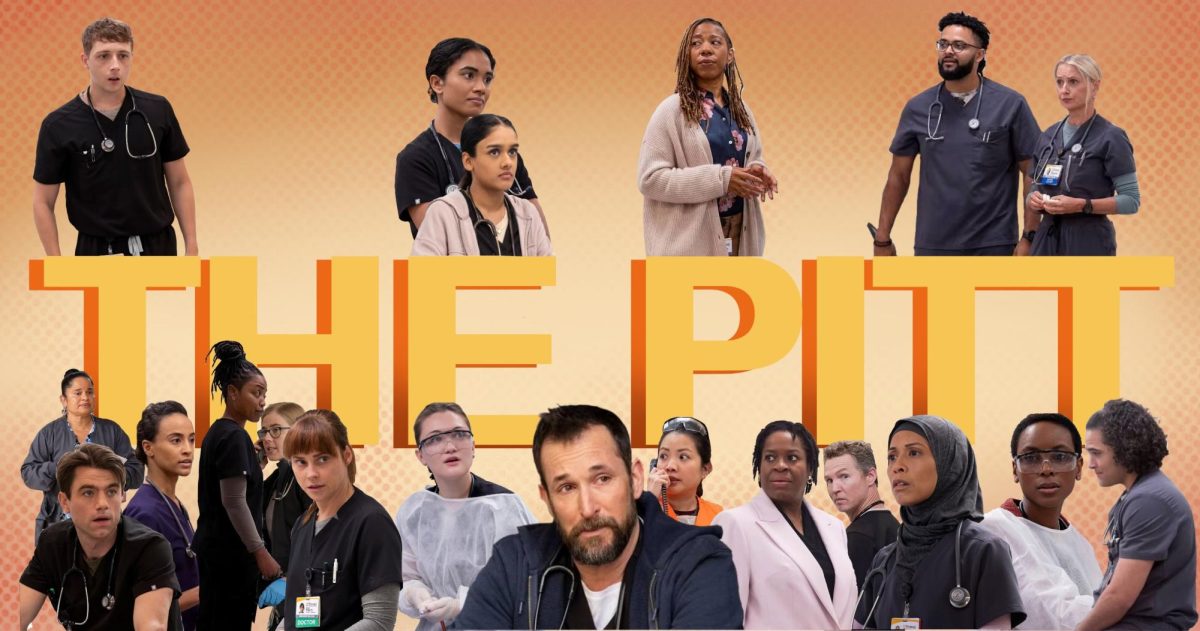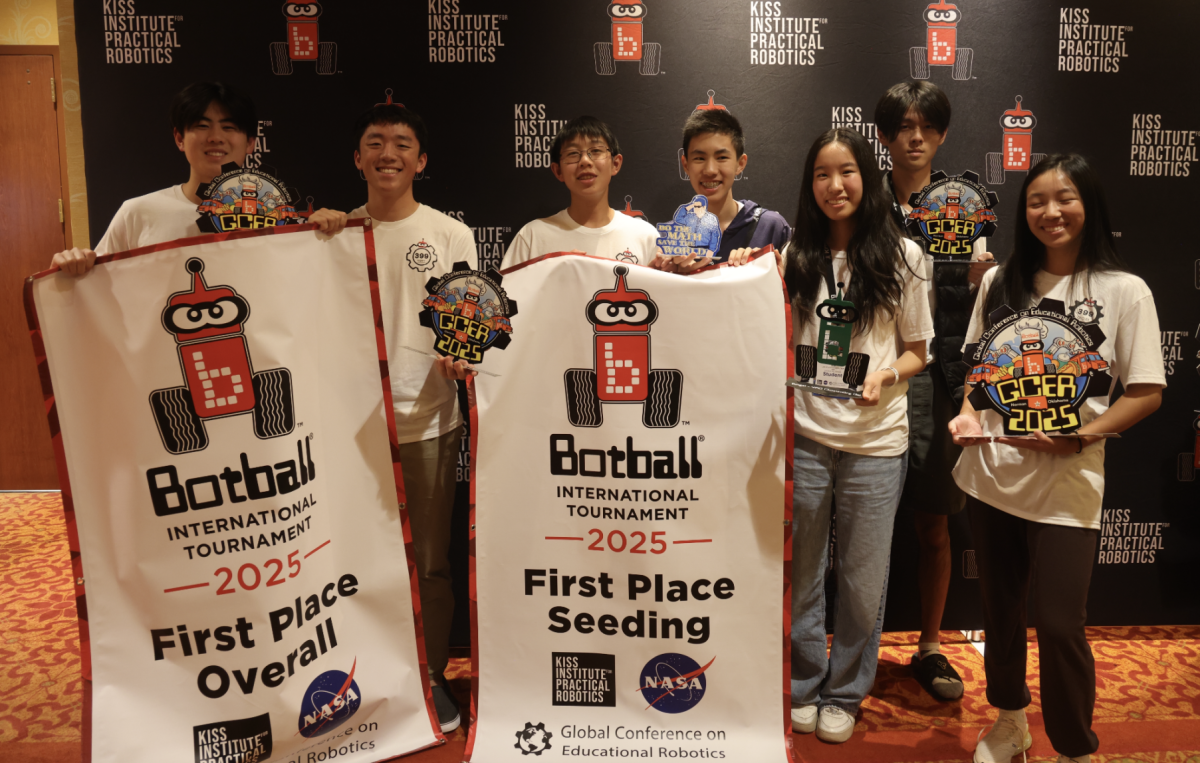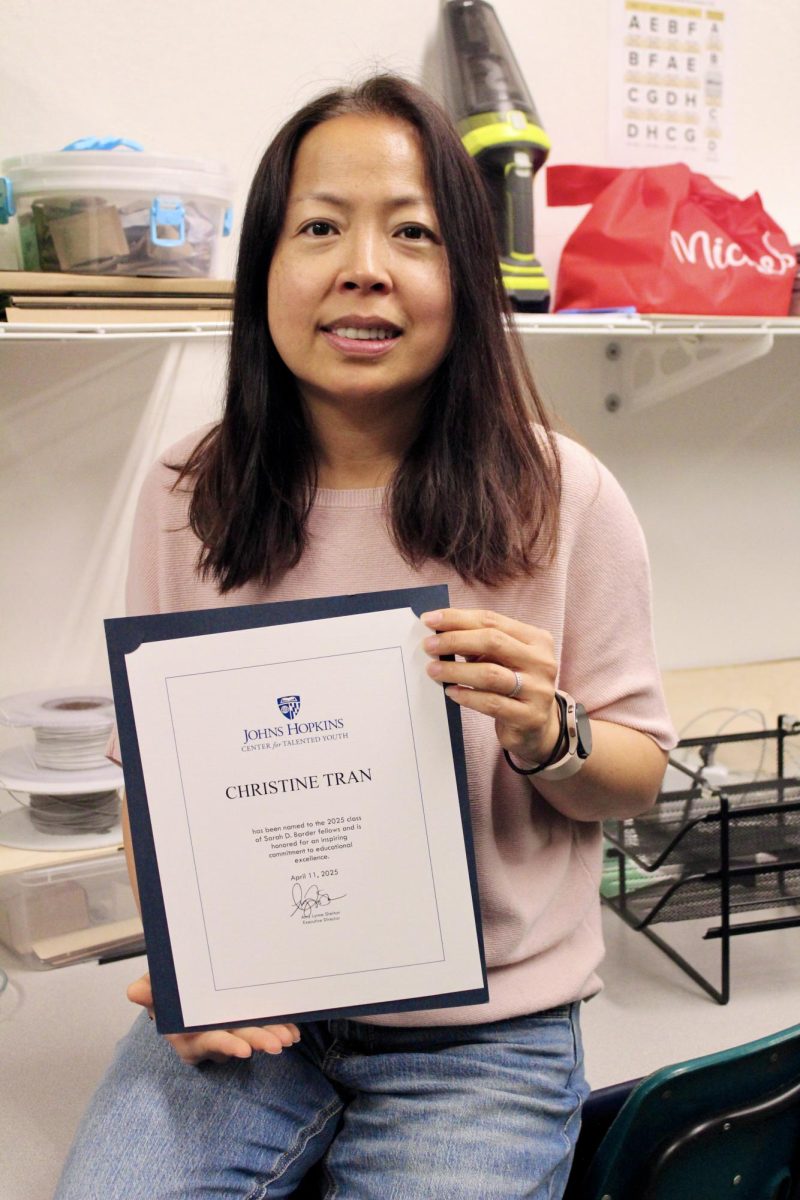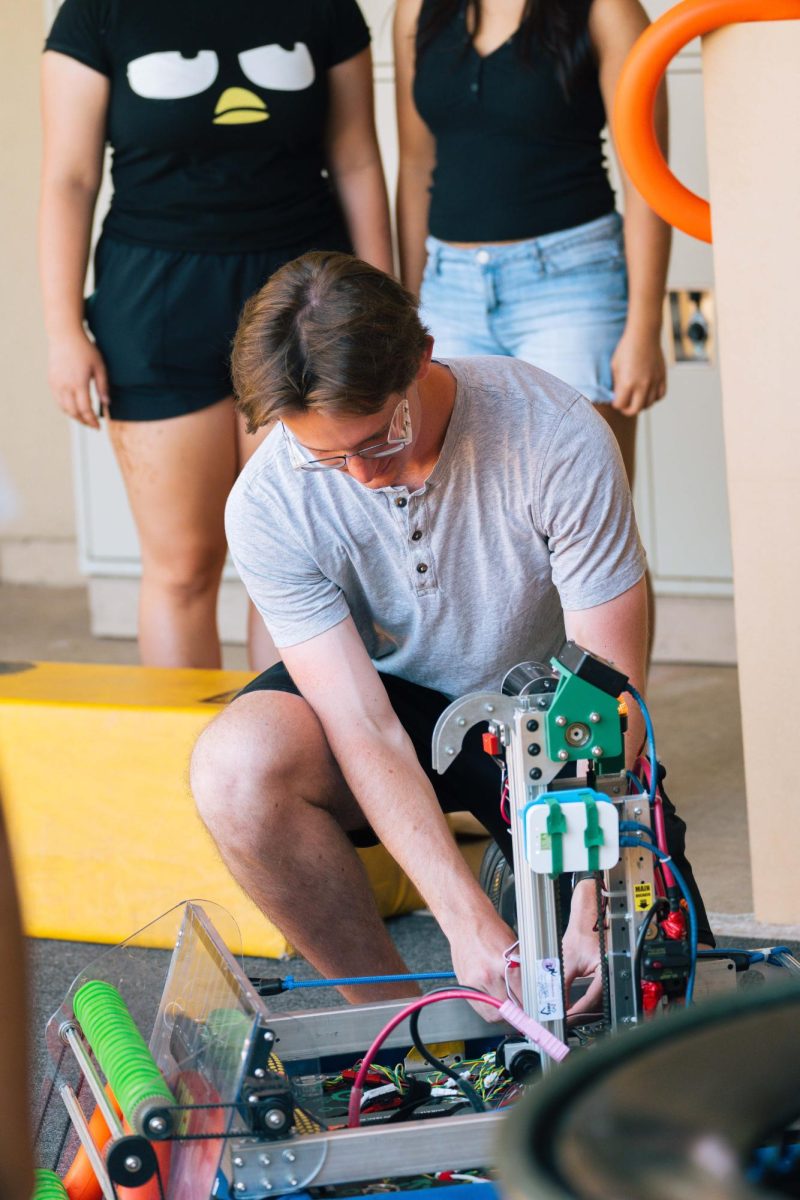Plastic products are manufactured in very large quantities, with a staggering 450 million tons produced each year. These products are readily available and single-use plastic in particular has become very convenient in people’s lives. Indeed, plastic pollution can be found throughout Pinewood Upper campus from plastic straws, utensils, wrappers and other single-use plastic products. Because plastic is easily disposable and is used to such a large extent, it is essential to consider the environmental and health impacts of the plastic waste on campus.
“I noticed that plastic starts disintegrating and sometimes birds eat it,” Pinewood Maintenance Lead David Sandoval said.
Plastic pollution is a significant hazard to not only land animals but also marine wildlife when it reaches the ocean.
About 70% of plastic in the ocean originates from land mainly through wind, rivers and drains. Plastic can take from 20 to 500 or more years to decompose, and it does not go away when it finally breaks down. Instead, the larger pieces of plastic become tiny microplastics. This can be hazardous, especially in the ocean, where all types of plastic are responsible for the deaths of thousands of marine mammals, seabirds and fish due to entanglement and ingesting toxic chemicals.
Plastic pollution also poses serious health risks to humans because seafood is commonly eaten. Research suggests that these microplastics can enter the human bloodstream and have been linked to serious health problems such as respiratory diseases.
Everyone can contribute to making Pinewood more environmentally friendly. To help reduce plastic pollution on campus, Sandoval provided some useful suggestions.
“Most of the kids already have a water bottle, right?” Sandoval said “Or bring their own spoon or their own fork from home. So just little things can help to reduce it.”
Sandoval often sees the most trash littered after lunch. This means that it is extremely important to remember to clean up everything and dispose of all trash before heading to class. There are blue recycling bins next to trash cans on campus that can be used for recycling waste such as plastic bottles. Keep in mind that there are many items that may seem recyclable but are actually not.
While these measures may seem small, if the entire Pinewood community starts thinking more about their single-use plastic consumption, then substantial progress towards reducing the waste can be made.
“At the end of the day, it is everybody’s responsibility,” Sandoval said.







